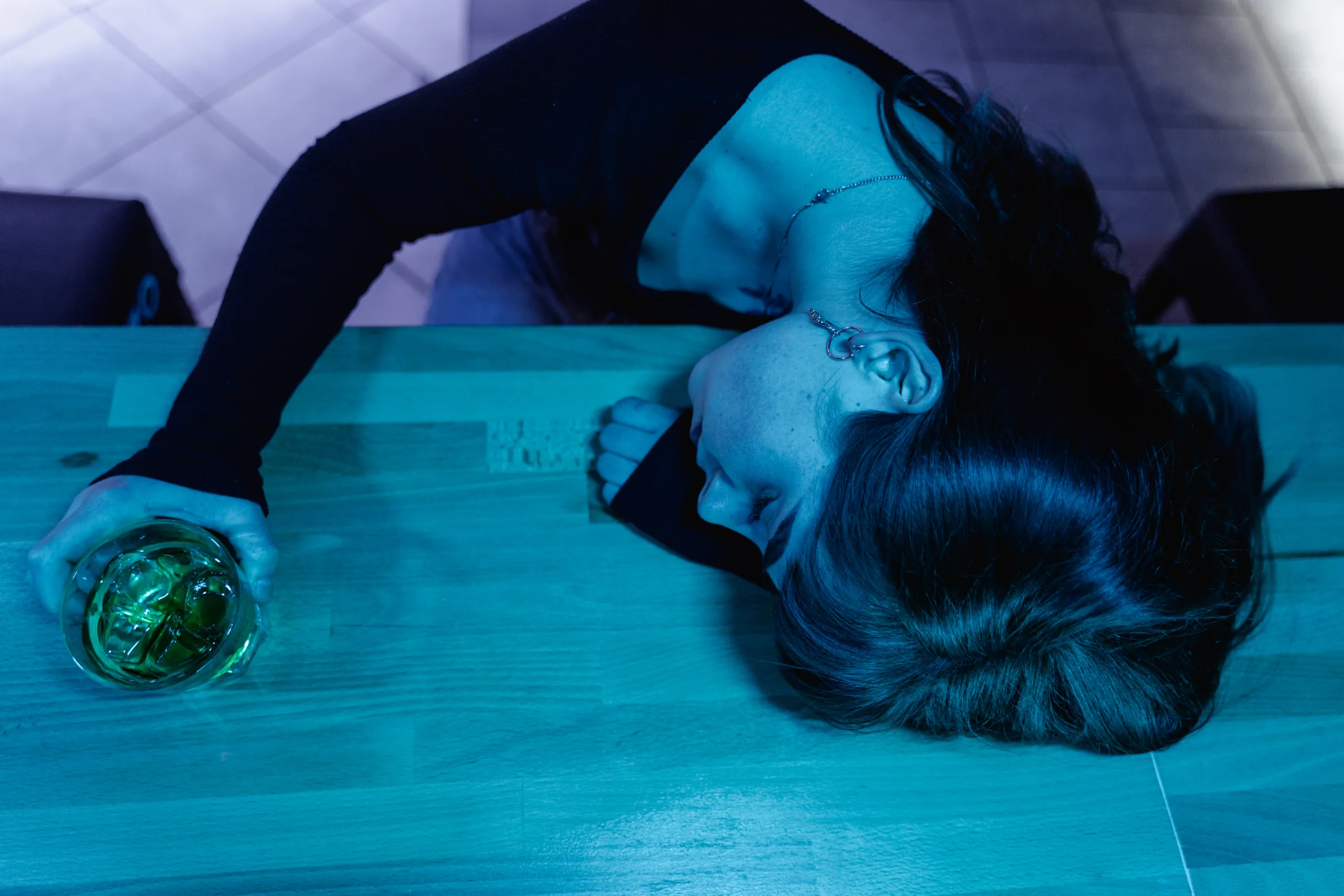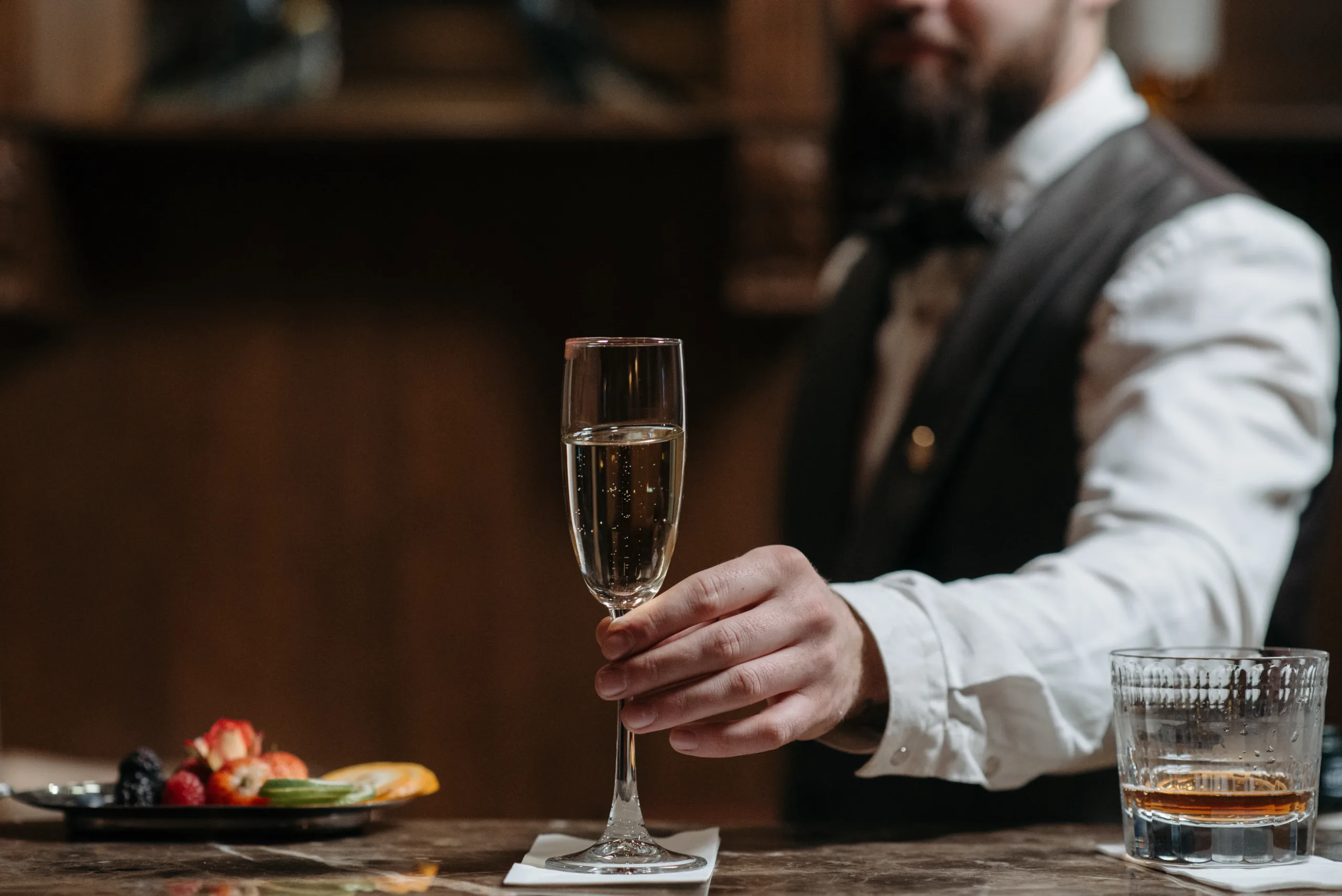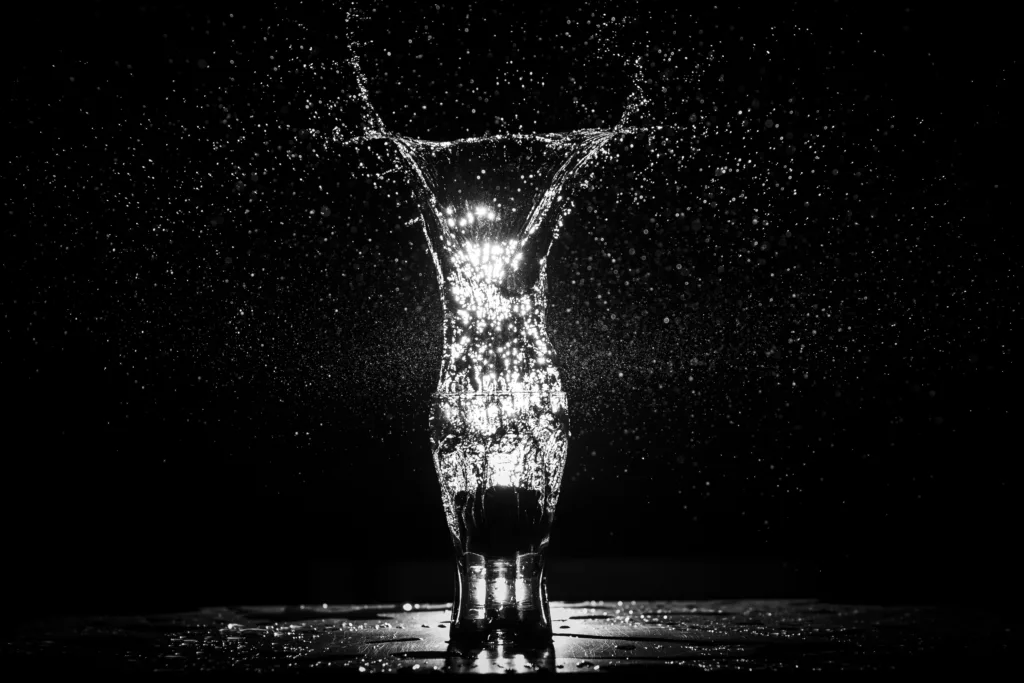Alcohol is an integral part of many celebrations and gatherings, but did you know that unopened alcohol can last for years? How long does unopened alcohol last and what is the best way to store it?
This article will answer these questions and provide information on how to maximize the shelf life of unopened alcoholic beverages. We’ll explain the different types of alcohol, how they are stored, and why proper storage is important. You’ll also learn about the different factors that affect the longevity of unopened alcoholic beverages. With this knowledge, you’ll be confident in knowing how to properly store your alcohol so that it lasts longer and you can enjoy it for years to come!Unopened alcohol can remain fresh for an extended period of time. Depending on the type of alcohol, it can last for many years without any significant change in quality. Typically, distilled spirits such as vodka and whiskey will last indefinitely when stored properly, while wine and beer generally have a shelf life of 1-2 years.
Storage Conditions for Unopened Alcohol
Storing unopened alcohol properly is essential for preserving its quality and taste. It should be stored in a cool, dark place away from direct sunlight and sources of heat. The ideal temperature range is between 10-21°C (50-70°F). Alcohol should never be stored in a freezer but can be stored in a refrigerator if the temperature is not too cold. In addition, alcohol should not be stored near household cleaners or chemicals as it can absorb the odors and flavors from them. Lastly, it’s best to store your bottles upright to avoid contact with the cork or cap which can cause spoilage.
It’s important to store unopened alcohol away from children and pets as it can be hazardous to their health. If you plan to store your alcohol for an extended period of time, make sure to check the expiration date on the bottle before consuming it. Some types of alcohol will last longer than others depending on their proof level and ingredients used in production. For example, fortified wines such as sherry and port typically will last longer than other types of wine due to their higher alcoholic content.
Estimating Shelf Life of Unopened Alcohol
Knowing the shelf life of unopened alcohol can help you determine when it is safe to drink, and when it may be time to discard the beverage. The shelf life of unopened alcohol depends on several factors, such as the type of beverage and how it was stored. Generally, unopened alcohol has a shelf life of several years, but it can start to deteriorate after a few months if not stored properly.
When estimating the shelf life of unopened alcohol, it is best to look at the label on the bottle. Most labels will list an expiration date or “best by” date that indicates when the beverage should be consumed. It is important to note that these dates are not hard-and-fast rules; they are simply guidelines that suggest when an opened bottle should be consumed for best taste and quality.
In addition to looking at expiration dates, there are a few other factors to consider when estimating shelf life for unopened alcohol. For example, if the beverage has been exposed to extreme temperatures or sunlight, this can cause the quality of the drink to deteriorate over time, even if it has not been opened. Additionally, if a bottle has been kept in a damp environment or exposed to contaminants such as dirt or dust, this can also reduce its shelf life.
It is also important to consider the type of beverage you have when estimating shelf life for unopened alcohol. Generally speaking, beers and wines have a longer shelf life than hard liquors such as whiskey or vodka due to their higher acidity levels which act as preservatives. However, fruit-infused liquors may have shorter shelf lives than traditional spirits due to their perishable ingredients.
When in doubt about how long an unopened bottle of alcohol will last, it is always best to err on the side of caution and discard any beverages that appear old or out-of-date before consuming them. Doing so can help protect your health and ensure that you are enjoying your beverages at peak quality and freshness.
Different Types of Alcohol and Their Shelf Life
Alcohol is a popular beverage throughout the world, and comes in many forms. Different types of alcohol have different shelf life and storage requirements. Beer, wine, spirits, liqueurs and other fortified wines each have different shelf lives.
Beer has a relatively short shelf life compared to other alcoholic beverages. Most beers should be consumed within three to six months. Light-colored beers are more prone to becoming skunky or developing off flavors when exposed to light or air for too long. Darker beers tend to hold up better over time. Cans are generally better than bottles for storing beer, as they provide more protection from light and air.
Wine has a longer shelf life than beer and can last for several years if properly stored. Generally speaking, white wines keep for up to three years while red wines can last up to five years when stored in an ideal environment with the right humidity level and temperature (usually between 55-60 degrees Fahrenheit). Wine should be kept away from light sources such as fluorescent lighting, as this can cause it to spoil faster.
Spirits such as whiskey, gin, vodka and rum can last indefinitely if stored properly in a cool dark place. These liquors should be kept away from sunlight or any other source of heat that might cause them to spoil faster. Spirits may also lose their flavor over time if not stored properly, so it is important that they are kept in their original containers or dark glass bottles with good seals.
Liqueurs are sweetened spirits with added flavors such as fruit or herbs, and usually have lower alcohol content than regular spirits. Liqueurs can last anywhere from one year up to several decades depending on the type of liqueur and how they are stored. Certain liqueurs like Benedictine may actually improve with age if stored correctly in a cool dark place away from light sources like fluorescent lighting or direct sunlight.
Fortified wines such as sherry or port usually have higher alcohol content than regular wine due to their added fortification process during production. Fortified wines tend to keep longer than regular wine because of their higher alcohol content; however, they should still be consumed within two years of purchase for optimal flavor quality. These wines should also be stored in a cool dark place away from direct sunlight or fluorescent lighting in order to preserve their flavor over time.
No matter what type of alcoholic beverage you prefer, proper storage is key for maintaining its quality over time. For best results with all types of alcoholic beverages make sure you store them in a cool dark place away from direct sunlight or fluorescent lighting in order to maximize their shelf life so you can enjoy them at their best!
Prolonging the Shelf Life of Unopened Alcohol
Alcohol has a longer shelf life than most people think. Generally, unopened bottles of beer, wine, and hard liquor can be stored for at least a year before they start to deteriorate in quality. However, there are some factors to consider when it comes to prolonging the shelf life of unopened alcohol.
In order to keep alcohol from going bad, it is important to store it in a cool, dark place. Light exposure can cause the alcohol to break down over time, so it should be kept away from direct sunlight or fluorescent lights. The temperature of the storage area should also be between 45 and 65 degrees Fahrenheit.
It is also important to make sure that bottles are tightly sealed before storing them. If air gets into the bottle, it can cause oxidation which will degrade the taste and quality of the alcohol. It is best to store unopened bottles upright in order to prevent any air bubbles from forming and entering the bottle.
Finally, it is important to check expiration dates on bottles before storing them for long periods of time. Most beer and hard liquor will last indefinitely if stored correctly, but wines typically have an expiration date that should be respected. If a bottle has been opened or stored improperly, its shelf life may be significantly reduced even if there is no visible sign of spoilage or deterioration in quality.

Identifying Signs Of Expired Unopened Alcohol
Alcohol does not go bad if it’s unopened and stored properly, but just like other beverages, it can expire. It is important to know how to identify the signs of expired unopened alcohol so you can make sure you are consuming a safe and quality product. The most obvious sign of expired unopened alcohol is an off-taste or smell. If the liquid has a strange odor or flavor, it typically indicates that the alcohol has gone bad. Additionally, if the container appears to be leaking or if there is a visible change in color, this is an indication that the alcohol has expired.
Another way to tell if your alcohol has expired is by checking the expiration date on the label. Most manufacturers will include an expiration date on their products to indicate when they are no longer safe to consume. If there is no expiration date listed on the label, it may be possible to determine when it was bottled by looking for a “bottled on” date instead. Finally, if you notice any signs of mold or discoloration on the bottle itself, this could be indicative of an expired product.
When in doubt, it’s always best to discard any alcohol that appears suspicious and purchase a new product instead. This will help ensure that you are consuming a quality product and avoiding any potential health risks associated with expired alcohol consumption.
Storing Unopened Alcohol at the Right Temperature
Storing unopened alcohol at the right temperature is essential for preserving its flavor and quality. The main factors that affect the quality of alcohol are heat, light, and oxygen. When it comes to storing alcohol, the key is to keep it away from light and heat sources and in a cool, dark place.
The ideal temperature for storing unopened alcohol depends on what type of beverage it is. Generally speaking, distilled spirits such as vodka, gin and whiskey should be stored at temperatures between 40-50°F (4-10°C). Refrigeration is usually not necessary unless you will be storing the spirits for an extended period of time. Wine should be stored at temperatures between 50-60°F (10-15°C). Champagne and sparkling wines should be stored at temperatures between 45-55°F (7-13°C).
When storing unopened alcohol, it is important to keep the bottle upright in order to prevent any leakage or corking of the bottle. This will help preserve its flavor and quality over time. It is also important to make sure that the cap or cork is tightly sealed in order to prevent air from entering the bottle.
It is also important to note that different types of alcohol have different shelf lives once they are opened. Generally speaking, distilled spirits such as vodka, gin and whiskey will last for up to six months after opening; wine will last up to one year; champagne and sparkling wines will last up to three months; and beer will last up to two months after opening.
For best results, make sure you store your unopened alcohol in a cool, dark place away from direct sunlight or other sources of heat. This will help ensure that you can enjoy your favorite beverages in their optimal condition for as long as possible.
The Effect of Sunlight on Unopened Alcohol
Alcohol is a common household item, and many people enjoy drinking it in moderation. However, when storing alcohol, it’s important to consider the effect of sunlight on unopened bottles. Sunlight can have a negative impact on both the taste and quality of the alcohol.
When unopened bottles are exposed to direct sunlight, the alcohol’s flavor and aroma can be damaged. This can cause the beverage to taste off or become bitter. In addition, prolonged exposure to sunlight can cause oxidation, which can lead to changes in color and clarity as well as other unpleasant flavors.
For optimal storage, it’s best to keep unopened bottles of alcohol away from direct sunlight as much as possible. This means that they should be stored in a cool, dark place such as a pantry or cellar. If you must store them outside of these dark places, make sure that they are covered with a light-proof material such as a cloth or box lid.
It’s also important to note that even though unopened bottles may not be directly exposed to sunlight, nearby items such as windows and mirrors can still reflect harmful UV rays onto them. Therefore, it’s important to take extra precautions when storing alcohol in areas with bright sun exposure.
In conclusion, it’s important to consider the effect of sunlight on unopened bottles of alcohol when storing them for later use. Sunlight can have a negative impact on both the taste and quality of the drink, so it’s best to keep them away from direct sun exposure whenever possible by storing them in a cool, dark place or covering them with light-proof material.

Conclusion
Unopened alcohol can last a long time if stored correctly. Generally, hard liquor stored in a cool, dark place will last indefinitely, while beer and wine last between 1-3 years. For any type of alcohol, the best way to ensure it lasts is to store unopened bottles away from direct sunlight and strong heat sources.
When it comes to determining whether or not unopened alcohol has gone bad, the key is to look for signs of spoilage such as changes in color and texture as well as strange smells. If any of these signs are present, then it’s best to throw out the bottle and avoid drinking it.
Overall, while there is no definite answer as to how long unopened alcohol will last due to different factors such as storage conditions and type of alcohol, following the guidelines mentioned above will help you keep your bottles in optimal condition for a longer period of time.
It’s important to remember that storing unopened alcohol correctly can help you keep it for longer and make sure that it doesn’t spoil before you have a chance to enjoy it!


